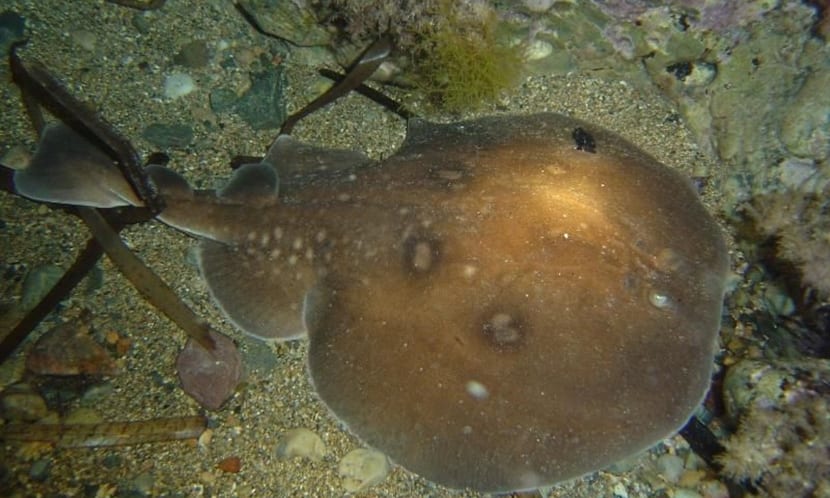
El tremielga fish or torpedo fish, also called tremielgas or tremielgas, it is a solitary species and bad swimmers that are usually found almost completely buried in sand or mud, leaving only the eyes and spiracles visible. This fish is characterized by its sedentary habits and by its fleshy disc with rounded edges that results from the fusion of the body with the pectoral fins.
The body of the tremielga is dorsoventrally depressed, and the pectoral fins, which are rounded, are fused along it, with which they form a slightly flattened disk in its frontal shape.
The pelvic fins, also rounded, appear below the pectorals, and are attached to the inner half of the tail, which ends with a well-formed caudal fin. On the middorsal line, the tail has two dorsal fins. The eyes are very small but prominent, allowing you to observe your surroundings with your body completely covered in sediment.
The half arched mouth shows small teeth arranged in rows. The skin is smooth, and on the back there are a pair of electrical organs that produces strong shocks when the tremielga feels harassed, this discharge, although annoying, are not dangerous for man. The most frequent currents range between 45 and 80 volts, although in certain situations and in very large specimens they can reach 220 volts. Even newborn babies are capable of producing shocks of about 4 volts.
They can produce electric shocks at will thanks to two kidney-shaped organs and light color that are called “electroplasts”. These organs are located at the front of the disk, on each side of the head.
The tremielga is a species of nocturnal habits and feeds on benthic organisms. It is ovoviviparous and gestation lasts about ten months and can carry between 5 and 32 embryos, depending on the size of the female.